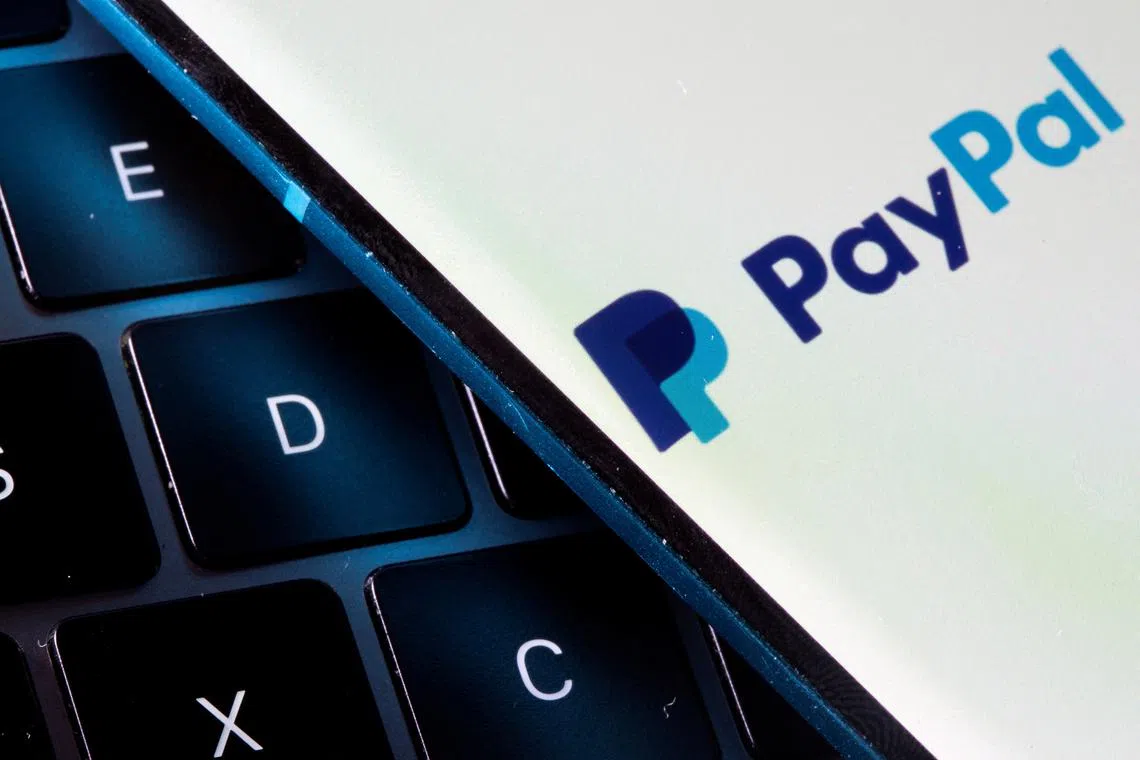PayPal tells Australia it supports buy-now-pay-later regulation
Sign up now: Get insights on Asia's fast-moving developments

PayPal said that the industry should face some regulation to ensure “consumer and industry certainty and competitive neutrality”.
PHOTO: REUTERS
SYDNEY - Payments giant PayPal Holdings wants buy-now-pay-later (BNPL) loans to be subject to consumer protection law, it said in a submission to the Australian government, adding a powerful voice from inside the sector calling for regulation.
The American firm, which provides BNPL loans alongside its main money transfer service, said it has its own safeguards to protect shoppers from borrowing too much.
But it added that the industry should face some regulation to ensure “consumer and industry certainty and competitive neutrality”.
The Australian government published the submission on Thursday as part of an inquiry into BNPL regulation.
The submission gives the fullest account so far of PayPal’s position on how much the sector should be supervised by the state.
Many other companies which sell BNPL loans said in submissions that they support minimal or self-regulation.
PayPal supports “a tailored, proportionate and thoughtful regulatory framework for the BNPL sector via the National Consumer Credit Protection Act to achieve the government’s objective to deliver greater consumer protections”, the US$88 billion (S$117 billion) company said in the submission, signed by its Australia general manager Andrew Toon.
BNPL companies attract shoppers by charging no interest and make money from retailer fees.
The absence of interest charges has exempted them from consumer credit law.
As a consequence, the sector’s business exploded in an online shopping frenzy spurred by Covid-19 stimulus payments and ultra-low bank interest rates.
PayPal’s submission said it supports mandatory credit licences for BNPL providers and rules requiring the companies to check a user’s suitability for a loan above an “appropriate threshold”.
The company sees “merit in further consideration of the development of a bespoke BNPL credit reporting framework” without the full costs “typically associated with engaging in the credit reporting regime”.
Australia’s biggest BNPL company Afterpay said in its submission that BNPL companies should have to follow an industry-run code of conduct and “the status quo has demonstrated its ability to prevent consumer harm”.
The Australian Securities and Investments Commission, in its submission, called for the BNPL sector to be subject to consumer protection law since “credit products with similar characteristics and the same purpose and function should be treated the same way”.
The government has said it wants BNPL regulation in place in 2023.
Assistant Treasurer Stephen Jones said Australia has seven million active BNPL accounts – one for every four people.
He added that the government is committed to “getting the right balance in competition, innovation and consumer protection”. REUTERS


